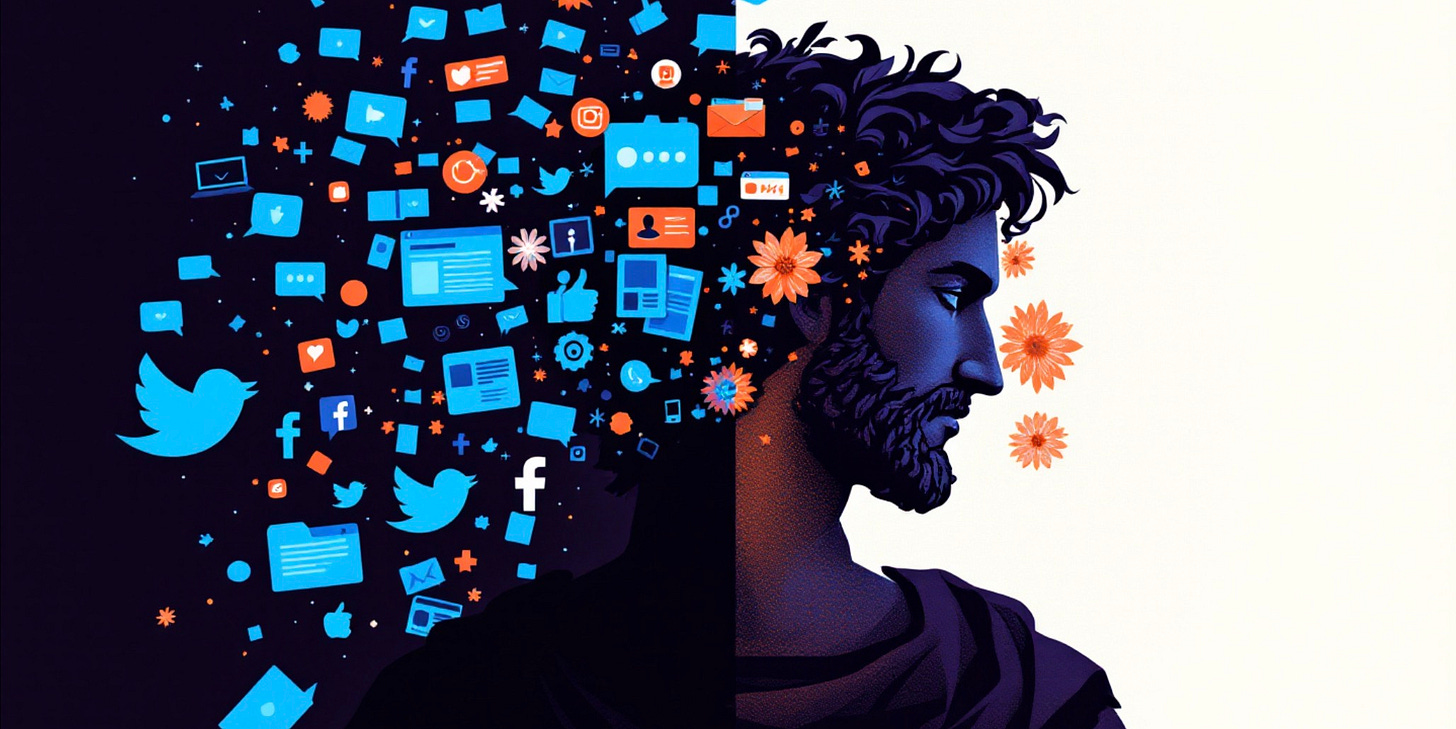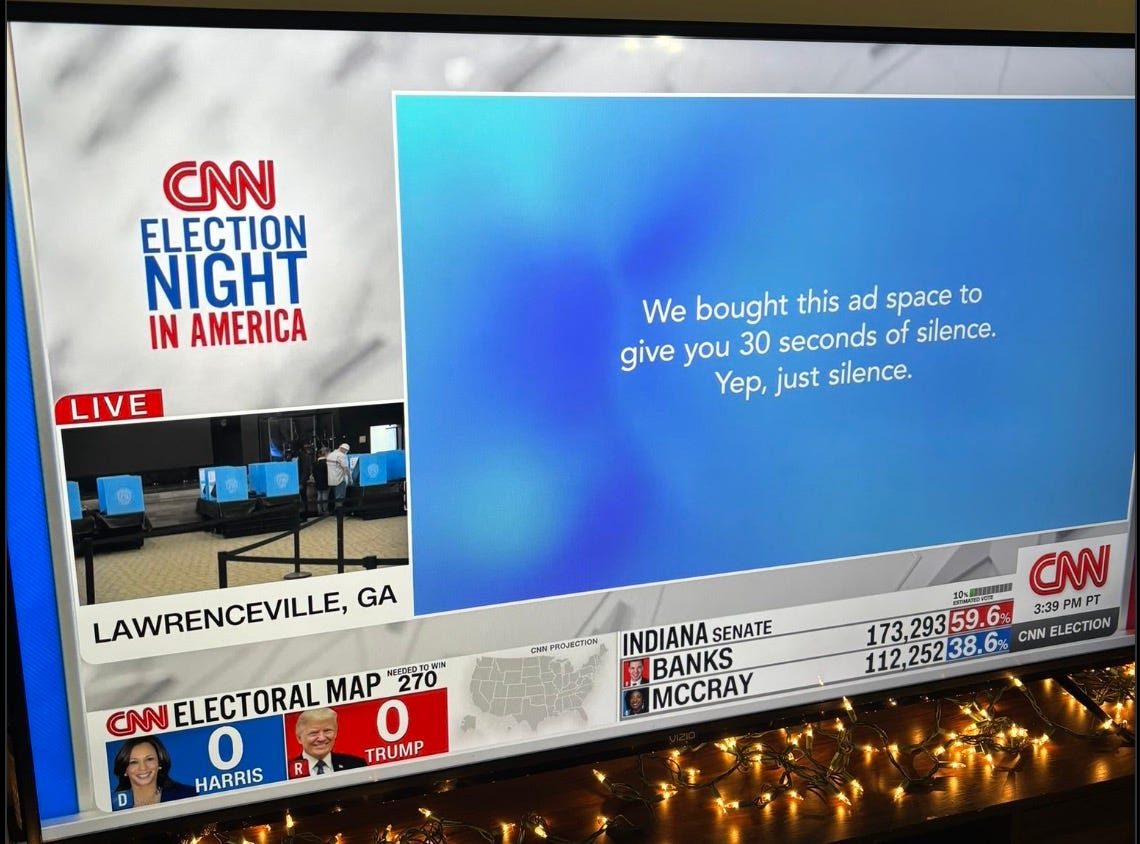The Attention Monster
And how to take your mind back
🔌 Busy exec who needs to master AI? Take my free e-mail course.
You might think, with that title, I'm about to dive into AI and LLMs. And yes, there's that famous 2017 paper1 that changed everything about how machines process language.
But that's not what this meditation is about.
This is about us. About our attention. About our desperate need for disconnection.
The Noise That Never Stops
Think about this for a moment:
How many apps are competing for your attention right now?
How many notifications have you received just while reading this?
How many infinite feeds are you contemplating checking?
We've been living in the "attention economy" since the early 2000s.
Old news, right? But it's evolved.
What started as Facebook's "Social Graph" has morphed into something far more powerful – the Interest Graph.
TikTok perfected it to an art form.
The Attention Monster
The elephant in the room: Trump's victory in the early hours of November 6th. Love him or despise him, there's one undeniable truth: he dominates attention. Why?
The algorithms reward the bizarre
Simple, memorable messages get piped straight to our brains
Provocative statements spark the "engagement" reward mechanism
Controversy creates clicks
He's become a one-man master of the interest graph – a perfect example of position-market fit for those who buy in.
Calm.com won the election night with this ad.
But its not nearly enough.
The Art of Deliberate Disconnection
I joke with my wife that I read the entire internet daily. Sometimes it feels true.
What I’ve learned the hard way: we need to disconnect.
Not just randomly, but deliberately.
Think about these moments:
How many times have you opened "just one more article" only to find yourself 20 tabs deep?
How many hours have you lost to the infinite scroll?
When was the last time you sat in silence, without reaching for your phone?
The solution isn't just disconnecting – it's deliberate disconnection.
If you can cut free of impressions that cling to the mind, free of the future and the past—can make yourself, as Empedocles says, “a sphere rejoicing in its perfect stillness,” and concentrate on living what can be lived (which means the present) … then you can spend the time you have left in tranquillity. — XII. 3
Why it matters.
It Restores Mental Clarity: Our brains weren't designed for this constant stream of information. They need rest.
It Returns Control: Every notification, every scroll, every click – they're all designed to keep us hooked. Like helpless addicts. Put you back in the driver's seat.
It Creates Space for Deep Work: Those moments when you're truly focused, truly present? They can't happen when you're being pinged every 30 seconds.
The attention economy isn't going anywhere. But we don't have to be its constant willing victims.
Sometimes, attention isn't all you need.
What we really need is its absence.
Plenty has been written about the seminal 2017 paper Attention is all you need. It changed sequential methods by introducing the transformer model. This led to large language model usefulness. The breakthrough was focusing on all-word relationships at once.





